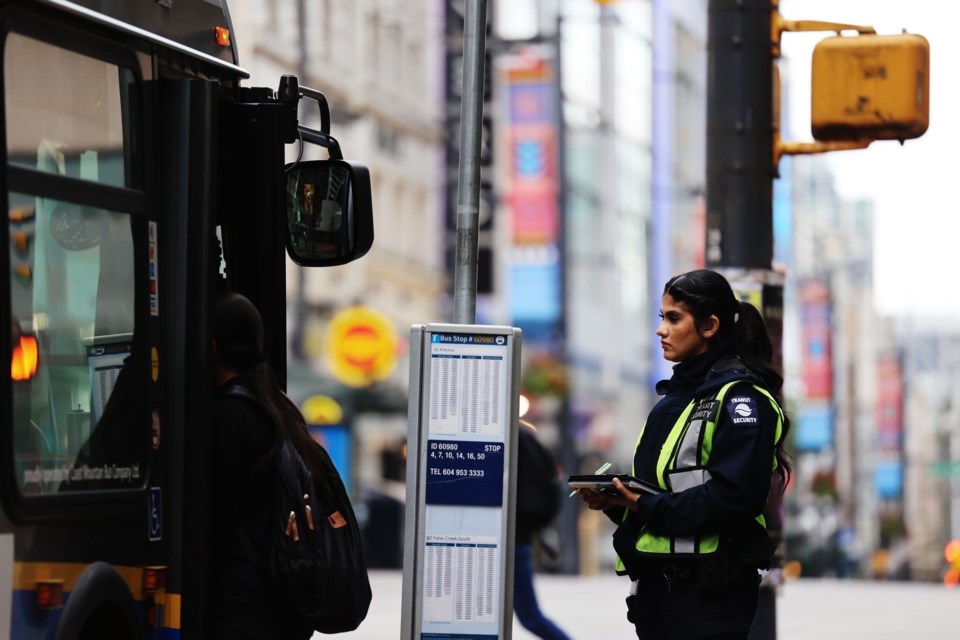TransLink is increasing fare enforcement patrols throughout the transit system to reduce fare evasion, educate riders about fare payments, and improve safety.
The high-profile blitz is designed to deter people from using the transit system without paying or paying the appropriate fare amount. Those who still choose to evade or use improper fare products may be issued an infraction ticket of $173.
These efforts aim to reduce fare evasion by $5 million each year. This is part of TransLink’s $90 million cost-efficiency measures announced in June to reduce TransLink’s funding gap.
“Transit fares are an integral part of how we pay for transit services in Metro Vancouver, and the vast majority of people using our system pay their fair share,” says TransLink CEO Kevin Quinn in a news release. “It’s unfair that some customers who are able to pay, are choosing not to and this undermines our finances and our ability to operate the transit system.”
What customers can expect
More high-visibility fare enforcement patrols at transit hubs, including on board vehicles.
Officers asking for and scanning proof of payment for verification.
Education on how to pay, which fare products to use, and how to access free or discounted passes for those who qualify.
Increased safety on the system with a higher presence of police and security.
Heightened patrolling has already begun across the system. For example, Transit Security conducted record-level fare enforcement checks in July following the addition of eight new officers. Over 100,000 riders were checked by Transit Security last month, a 60 per cent increase compared to last year.
For customers who are unable to pay for transit, resources may be available for free or subsidized transit passes. Free or subsidized passes are available for those who are eligible for the BC Bus Pass Program, as well as through other charitable organizations that TransLink donates free passes to such as the Homelessness Services Association of BC.
The increased patrols will continue to ramp up in the coming months and will be spread throughout Metro Vancouver, with enforcement locations changing regularly.



